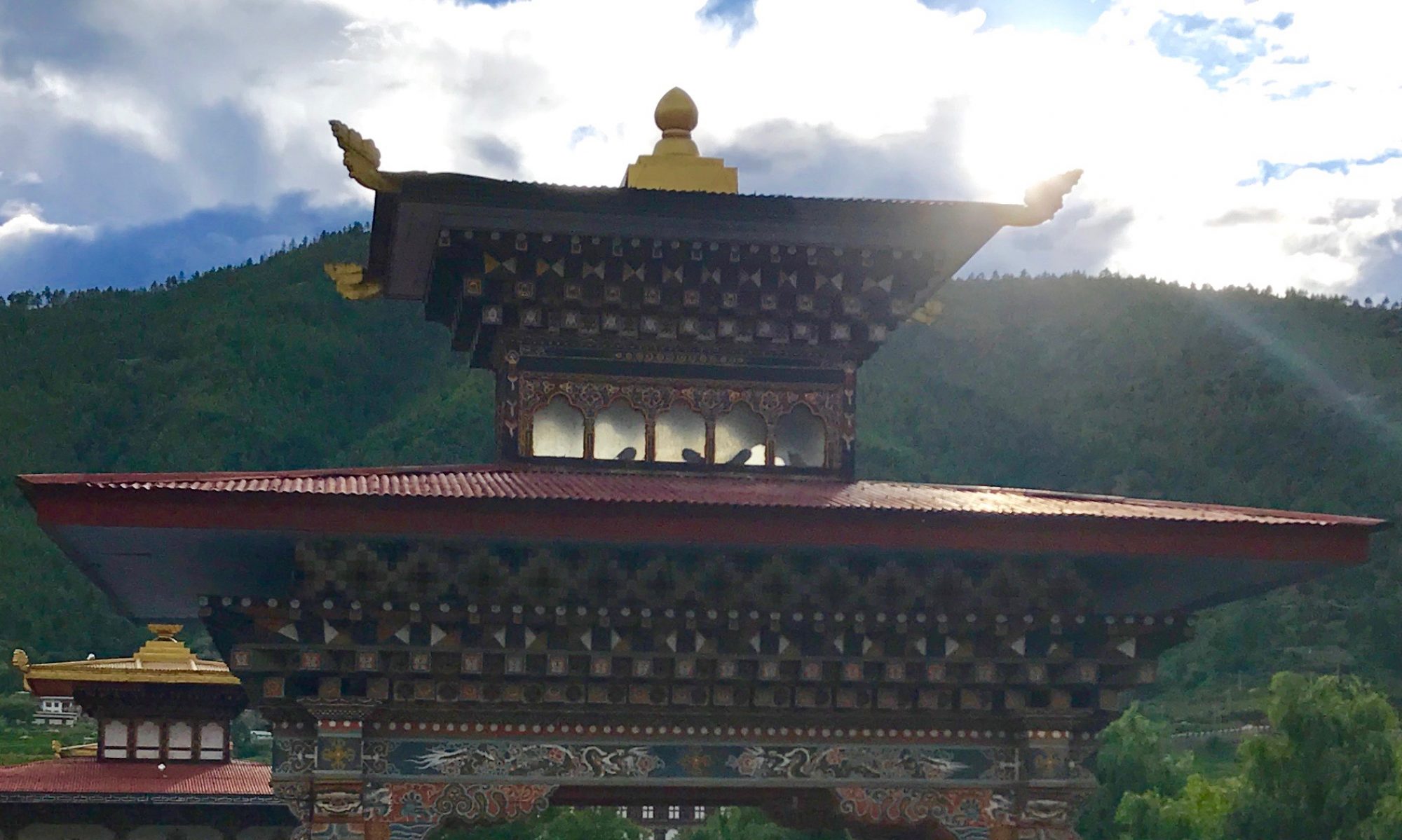Sunday morning I was very snappy. Jeremy needed more attention than usual because I’d been gone, and I needed a little down time because I’d been working a lot to prepare for the workshop. Perhaps because I was snappy, Jeremy was weepy and quick to anger. Finally, I said I just had to get out of the guesthouse, and James (ever supportive) and Jeremy came with me for an attempted hike up to Yonphula.
We started up the hill at a place I had seen a young woman climbing the day before.
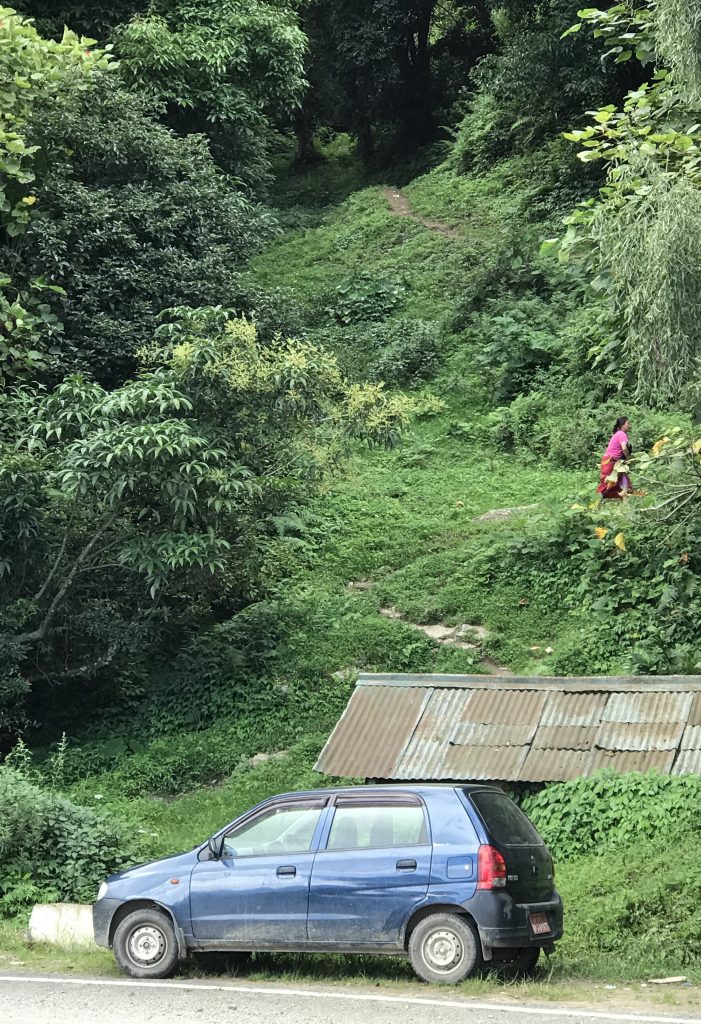
We went past a nice stile,
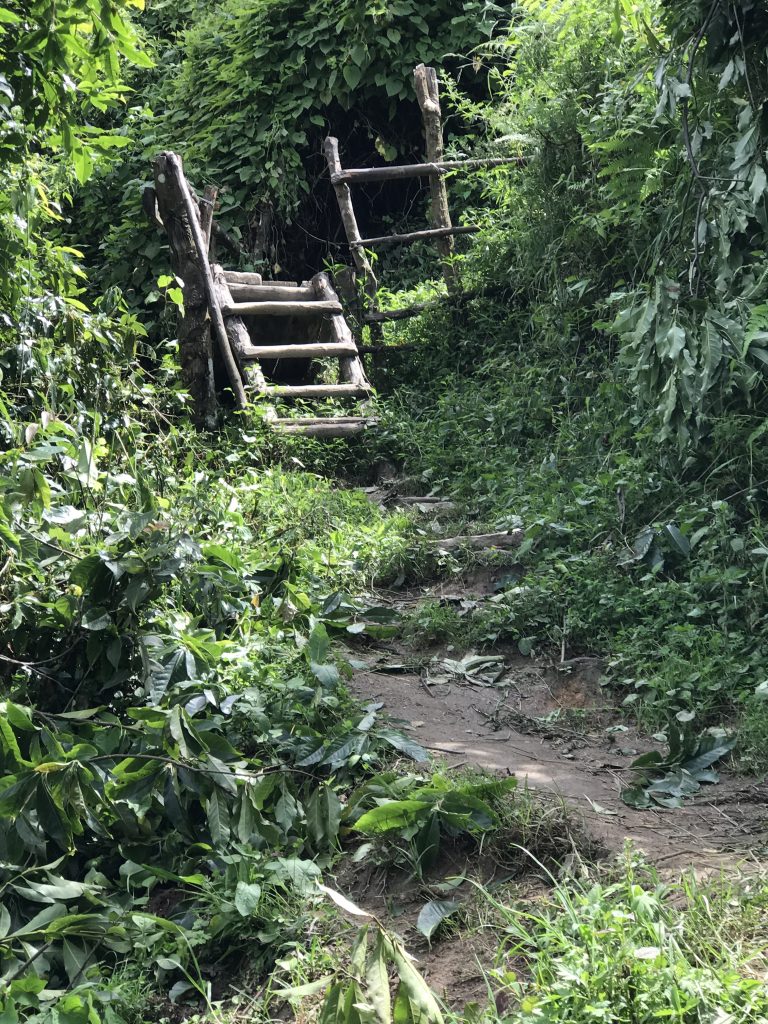
up through a farmstead where we encountered one of my students (Sang Tenzin) lodging with his family. Up above that farm, we started cutting west across a hillside. A group of people at a house down below called up to invite us down to talk with them. “We must climb,” we explained. “We are trying to reach Yonphula.” “But it’s a hot day,” they responded, and they sent one of their number up to us with an armful of Asian pears—far more than we could eat on our little trek.
A little further up, the mountains opened up to us.
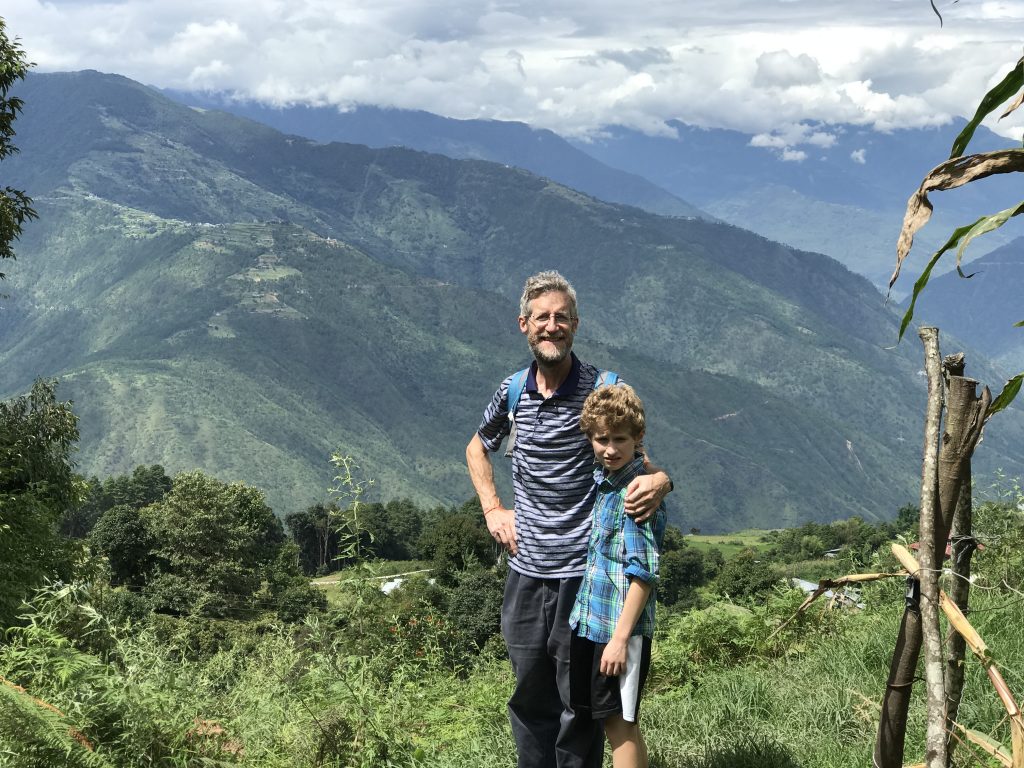
The breeze was nice and cool, though the day was indeed hot, which was particularly hard on Jeremy. We passed some children, bathing naked in a pool along a dirt road, formed by water pipes disconnected by the rains. (No photos. The girls ran off to dress on the hill above the road; the boys made faces at us, but told us the path to Yonphula lay to the west.) We passed a house under construction, with people on the roof, on a retaining wall, on a field beside the house. We tried to say hello, but couldn’t say much beyond that. They all found us very comical, but when we said Yonphula, they pointed down the road to the west.
Someone was gathering forage for animals when they got distracted?
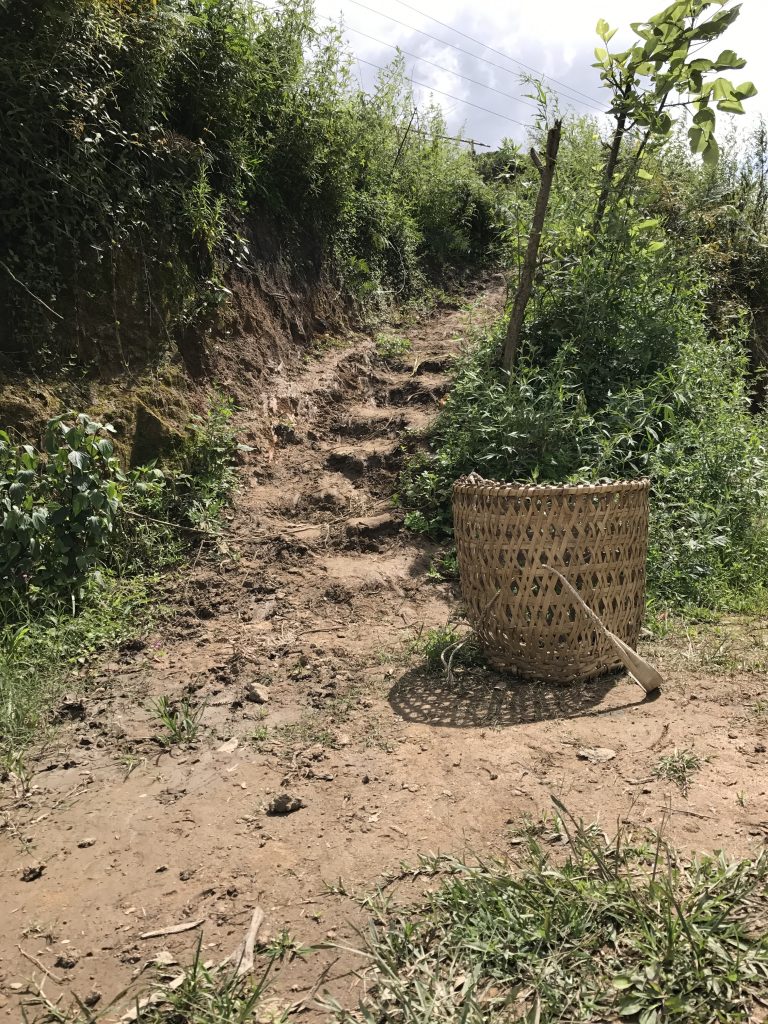
A few bends further down the road, I realized people had been pointing us to the national highway—the paved road to Yonphula. Jeremy was very hot. James volunteered to turn back with him, and we returned, past the house construction, to a field in which these cows were grazing.
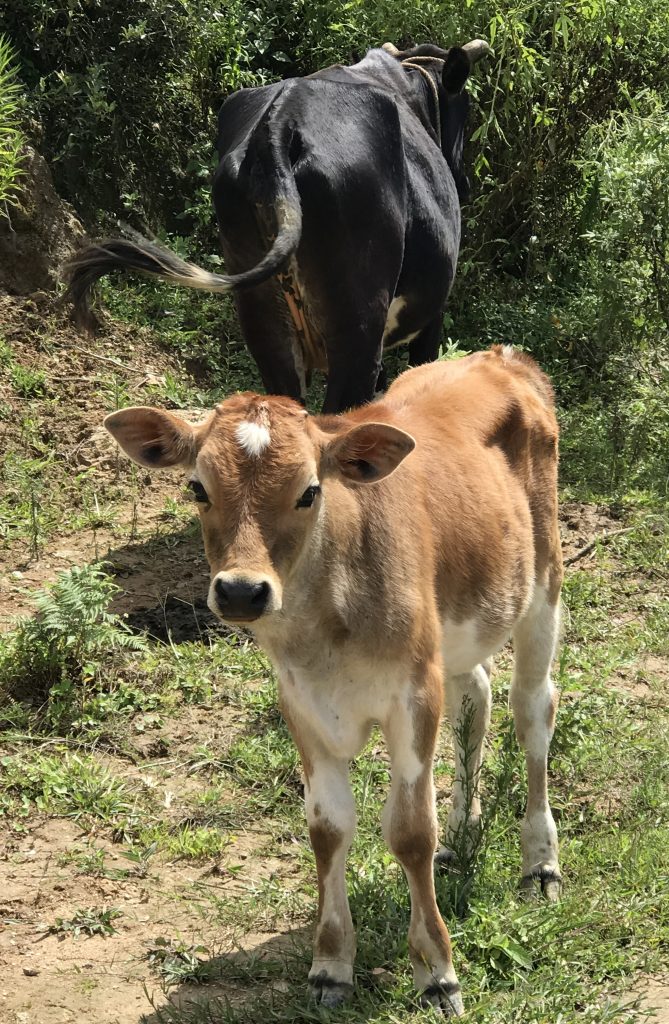
A young couple had begun climbing this field. “People say Yonphula is this way,” they said, “but we have never been.” I overtook them within a few moments, and then continued on, sometimes through a stream, sometimes beside it.
The path led close by a range of houses: some that seemed solid but abandoned, others that seemed much less established but still occupied. I was a little nervous about some of the stacks of alcohol bottles I came across, especially when the house seemed to be falling down, the plaster coming off the bamboo frame.
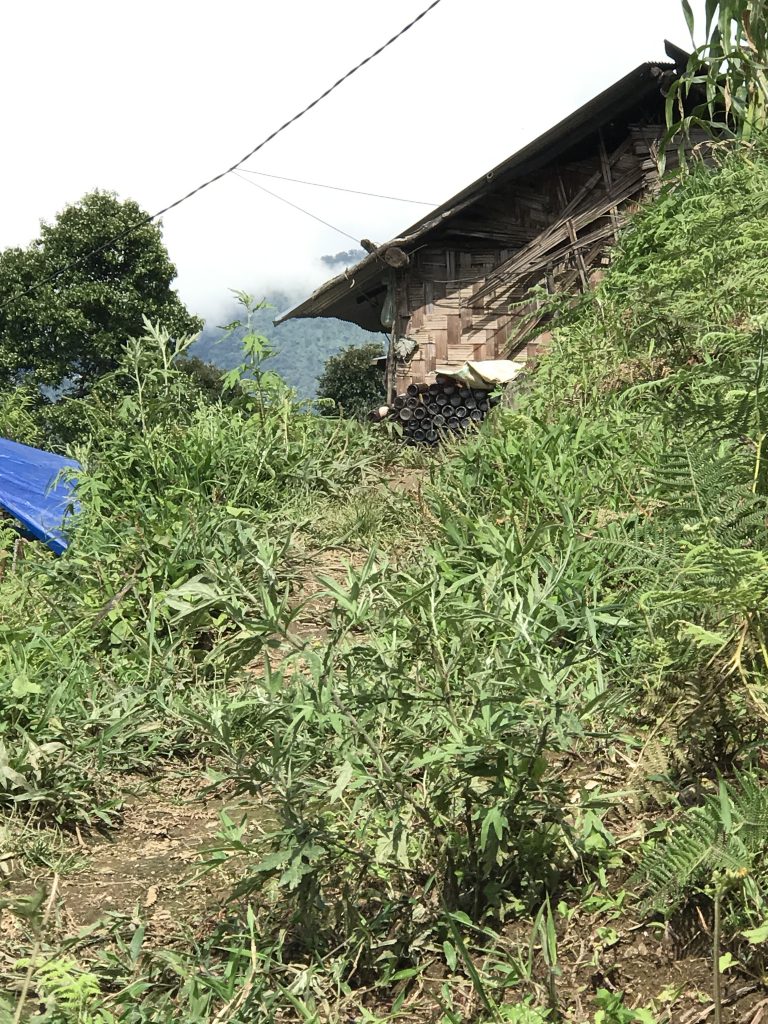
(Someone later suggested that people might be collecting the bottles for recycling purposes—that the bottles themselves did not establish a drinking pattern. On the other hand, administrators have said to me, “You know what we Bhutanese are like: we drink a lot!”)
Then there was the decaying chorten/wall: I need to learn about the meaning of wall versus chorten:
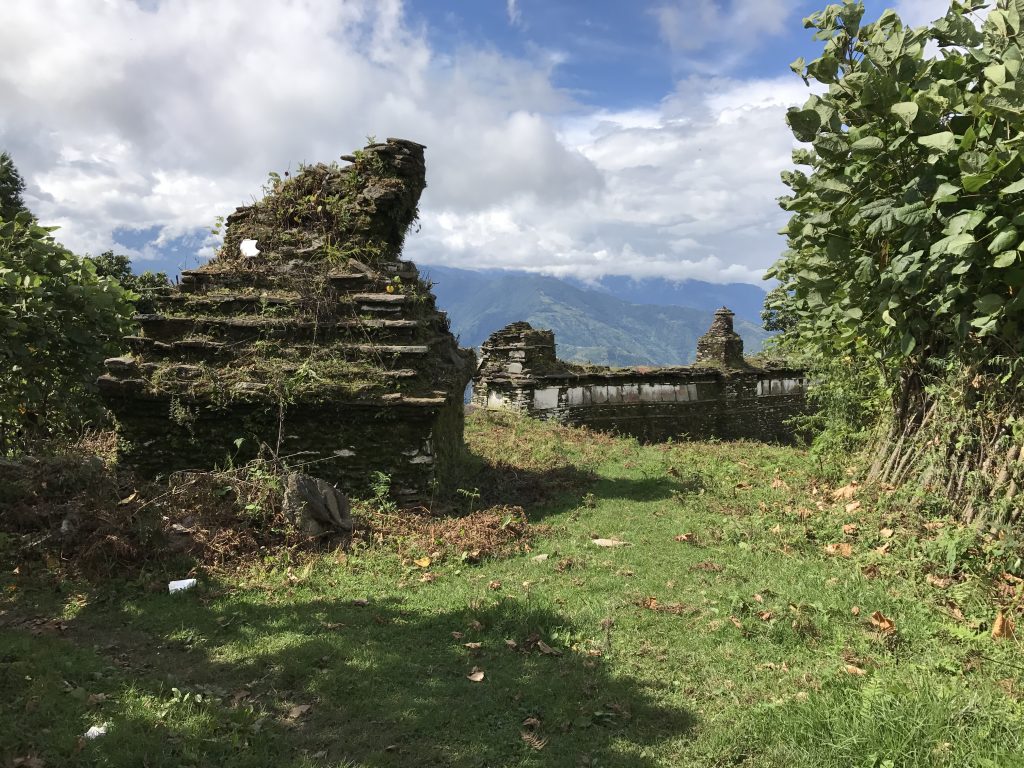
The row of trees on the horizon mark the Yonphula campus, but I was tired, so I decided to turn back.
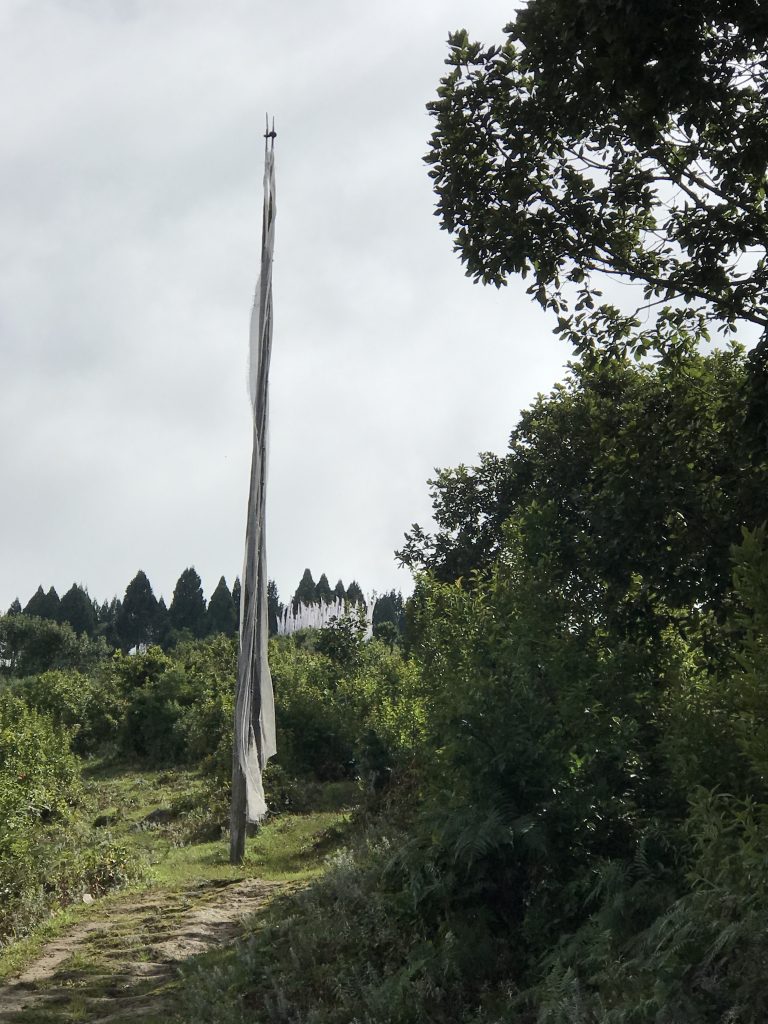
Here, the blue sky visible through the wood slats just below the roof suggest that this house would be very cold in winter.
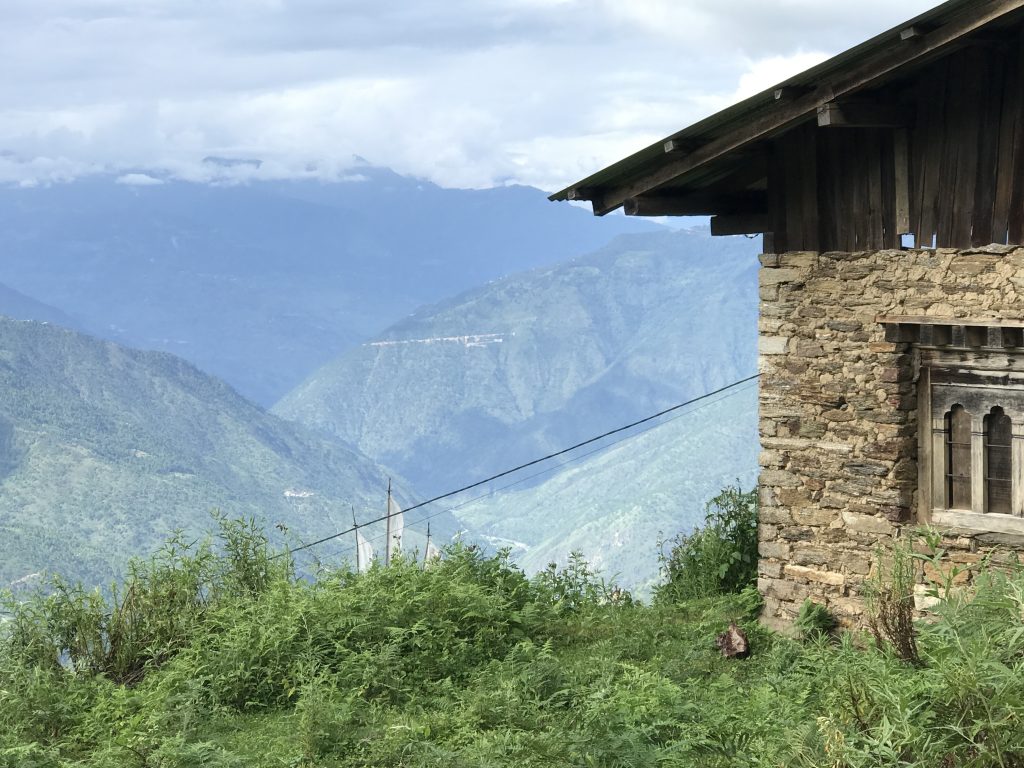
I loved the red flowering tree, the field of bracken, the club moss (?), the peculiar structure of these flowers.
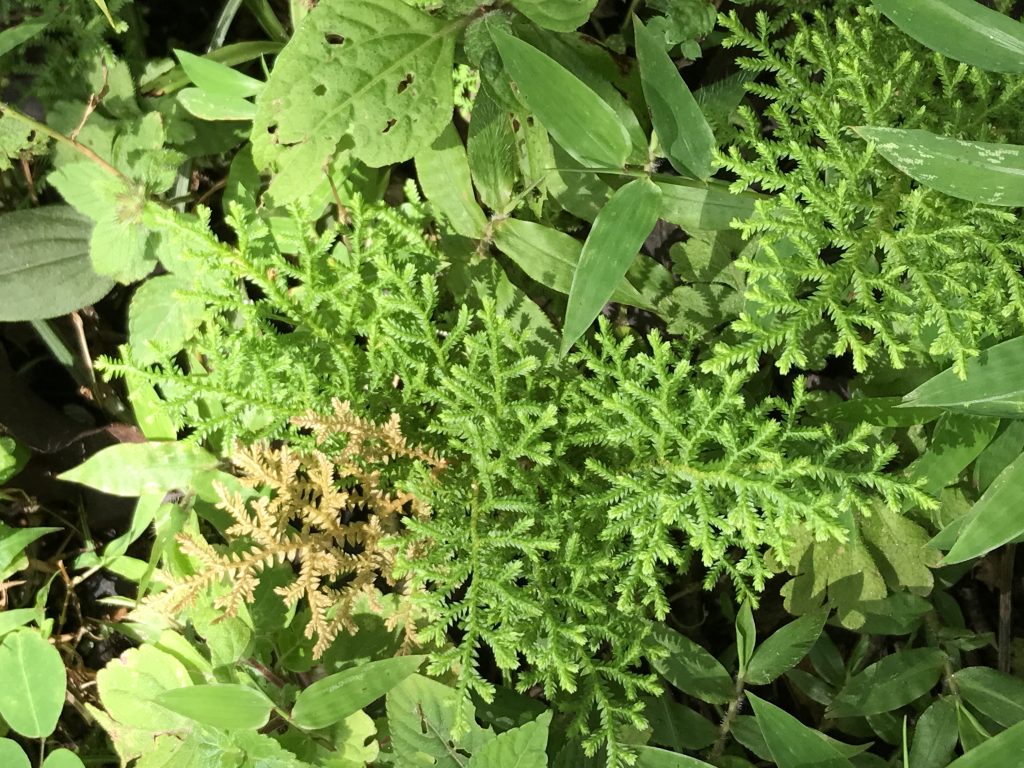
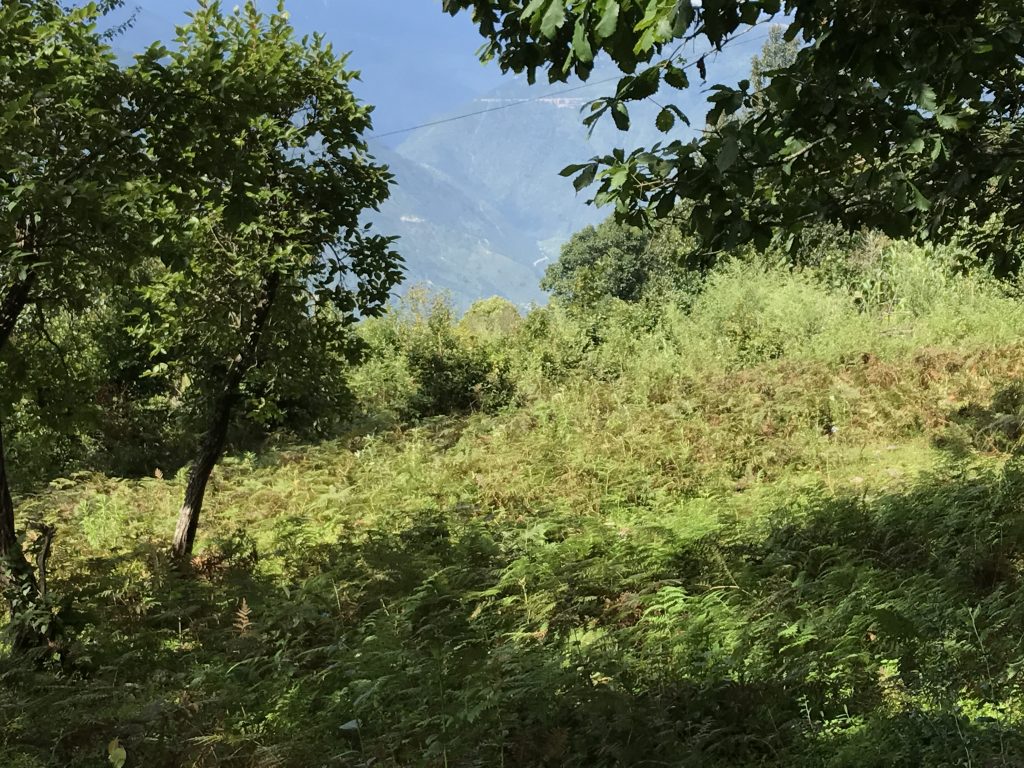
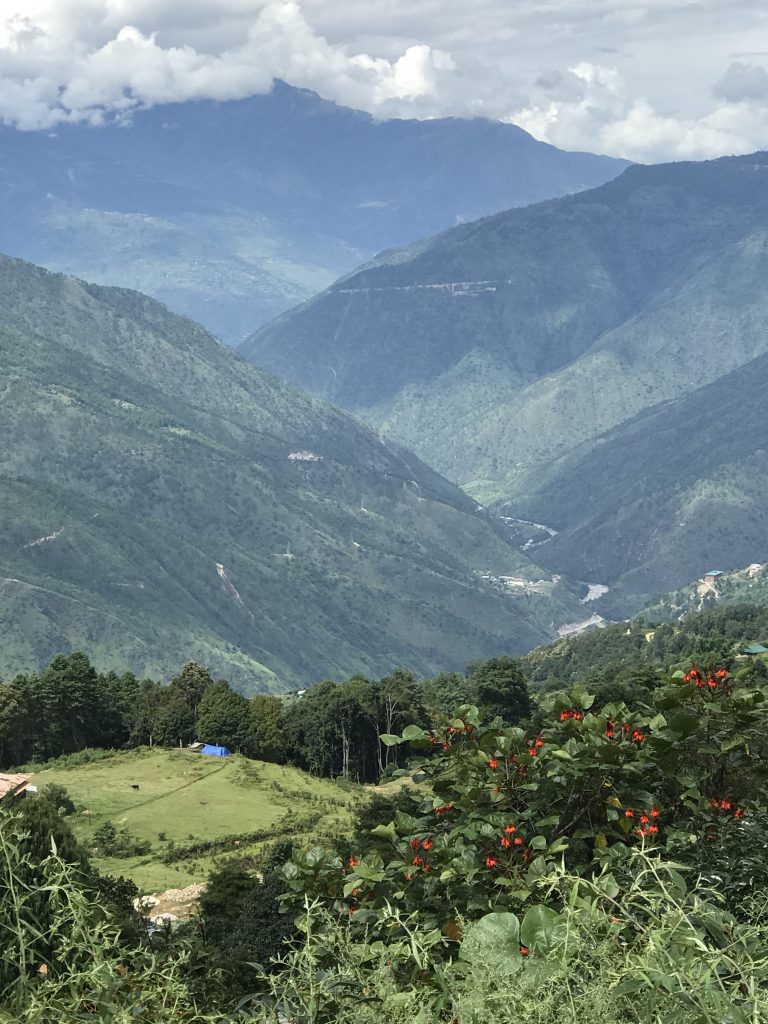
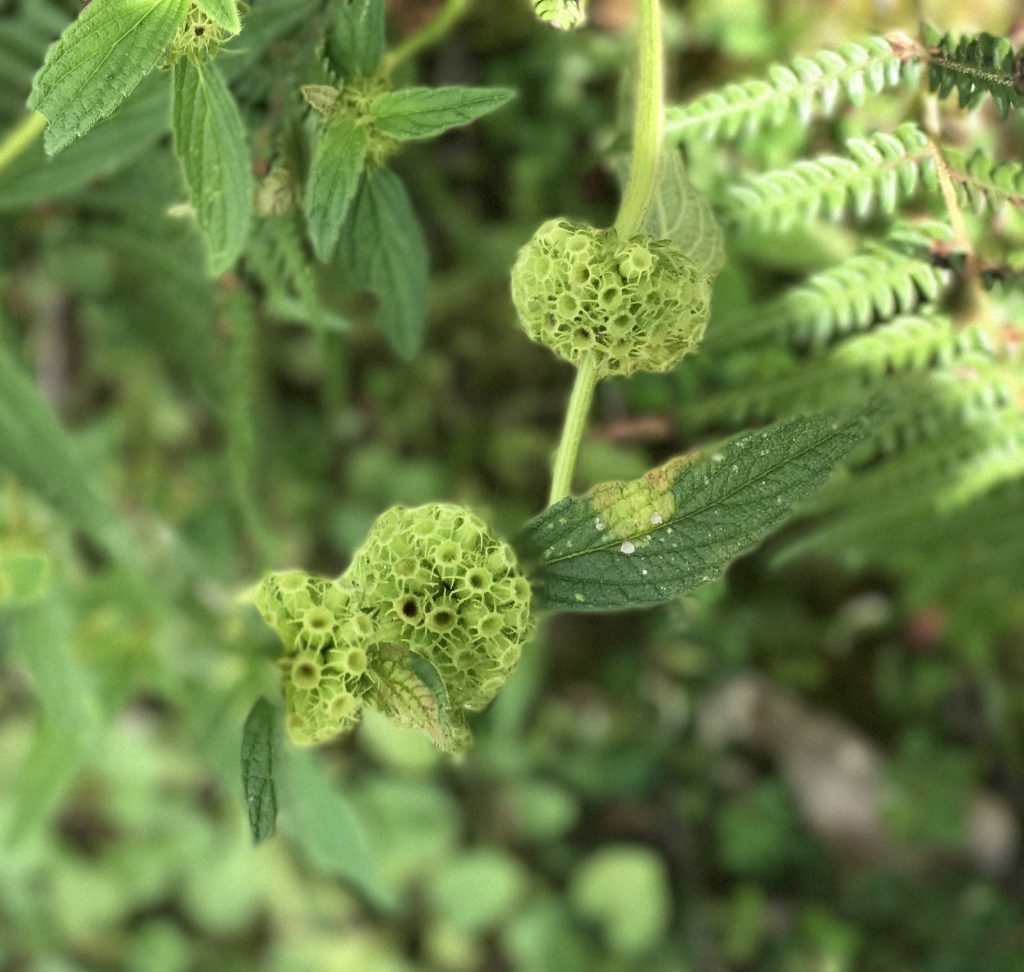
I went astray several times on the way down the mountain. At one point, I was walking through someone’s homestead. An old man was pounding grain in a fenced yard near the house. I asked him the way to Kanglung and he pointed me through their yard and down the hill. As I passed the house, a boy came out. “Are you Jeremy’s mother?” he asked. “Yes,” I replied. (Around the world, people know Jeremy before they know anyone else in the family.) “Can I ask your name so I can tell him who I met?” “I am Jeremy’s friend,” he replied. OK, I figured that… I’m guessing this is the boy Jeremy calls Giant II (as opposed to Giant I, who is female). A few weeks later, I met the same boy down in Kanglung, where he was willing to give me his name: Karma. “Yes, of course it was Karma,” said Jeremy when I tried to put the pieces together for him later. “Didn’t you know that already?”
